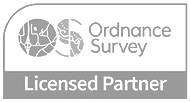When working with an atlas publisher – whether undertaking the cartographic design of a new atlas from scratch or updating the mapping information in a new edition, there are several key considerations to ensure the project has a successful outcome. Here we take a brief look at some of the key factors for the cartographer to consider:
Content Accuracy & Quality
The cartographer must ensure geographical accuracy at all times, by using up-to-date map data derived from authoritative sources such as national mapping agencies. The accuracy and authenticity of thematic map data is equally important, particularly when the atlas covers topics such as climate, politics, or economics. Visual consistency across the atlas is also essential, including the uniformity of symbols, colour schemes, map scales, and projections.
Map Design & Style
In terms of map design and style, the choice of map projection should align with the purpose of each map. For example, the Mercator, Robinson, or Winkel Tripel projections may be most suitable based on the thematic or regional focus. The level of detail should be tailored according to the target audience; an atlas for schoolchildren requires a different level of granularity compared to one designed for adult academic researchers. A clear cartographic hierarchy should be designed to guide the viewer’s eye to key elements such as titles, borders, and cities. Map labelling and typography need to be legible and free from clutter, ensuring that overlapping labels do not hinder readability.
Target Audience & Purpose
Understanding the target audience and the intended purpose of the atlas is critical. Whether the atlas is designed for educational use, general reference, or a thematic focus—such as historical or environmental analysis—will influence the approach to content, visual complexity, and narrative tone. Considerations of reading level and visual accessibility should also be made to ensure appropriate engagement with the material.
Data Sources & Licensing
The sources and licensing of data play a pivotal role in the content development of the atlas. The cartographic expert should ensure that appropriate data licensing is in place to cover source GIS data, satellite imagery, thematic sources such as census data and even flags. The licensing terms and whether data is open-source, commercially licensed and / or provided by the publisher will all impact both budget and usage rights.
Authoring Responsibilities
In working with an atlas publisher, it’s essential to agree at the outset on defined roles and specifically on authoring responsibilities. The cartographer needs a clear definition on their role with the map specification and design process and possibly also on who is writing explanatory text, creating illustrations, charts, or infographics. The publisher will also want to agree on editorial standards, stages, deadlines and word counts to ensure and successful collaboration.
Tools and File Formats
Finally, the tools and file formats used throughout the atlas production programme should also be agreed on and standardized wherever possible. Whether using ArcGIS, QGIS, Adobe Illustrator, InDesign, or other software, the final deliverables should be in acceptable formats such as vector files, high-resolution TIFFs, or PDFs. It’s also helpful to have a version control or collaborative editing workflow in place.
In conclusion, producing a high-quality atlas requires careful coordination across multiple areas—from ensuring data accuracy and selecting the right map projections to understanding the audience, managing timelines, and navigating legal or licensing requirements. Each stage of the process, whether creative, technical, or administrative, plays a critical role in shaping the final product. Clear communication, defined responsibilities, and attention to detail will help ensure that the atlas is not only visually compelling and informative but also reliable, accessible, and fit for its intended purpose.





Comments are closed here.